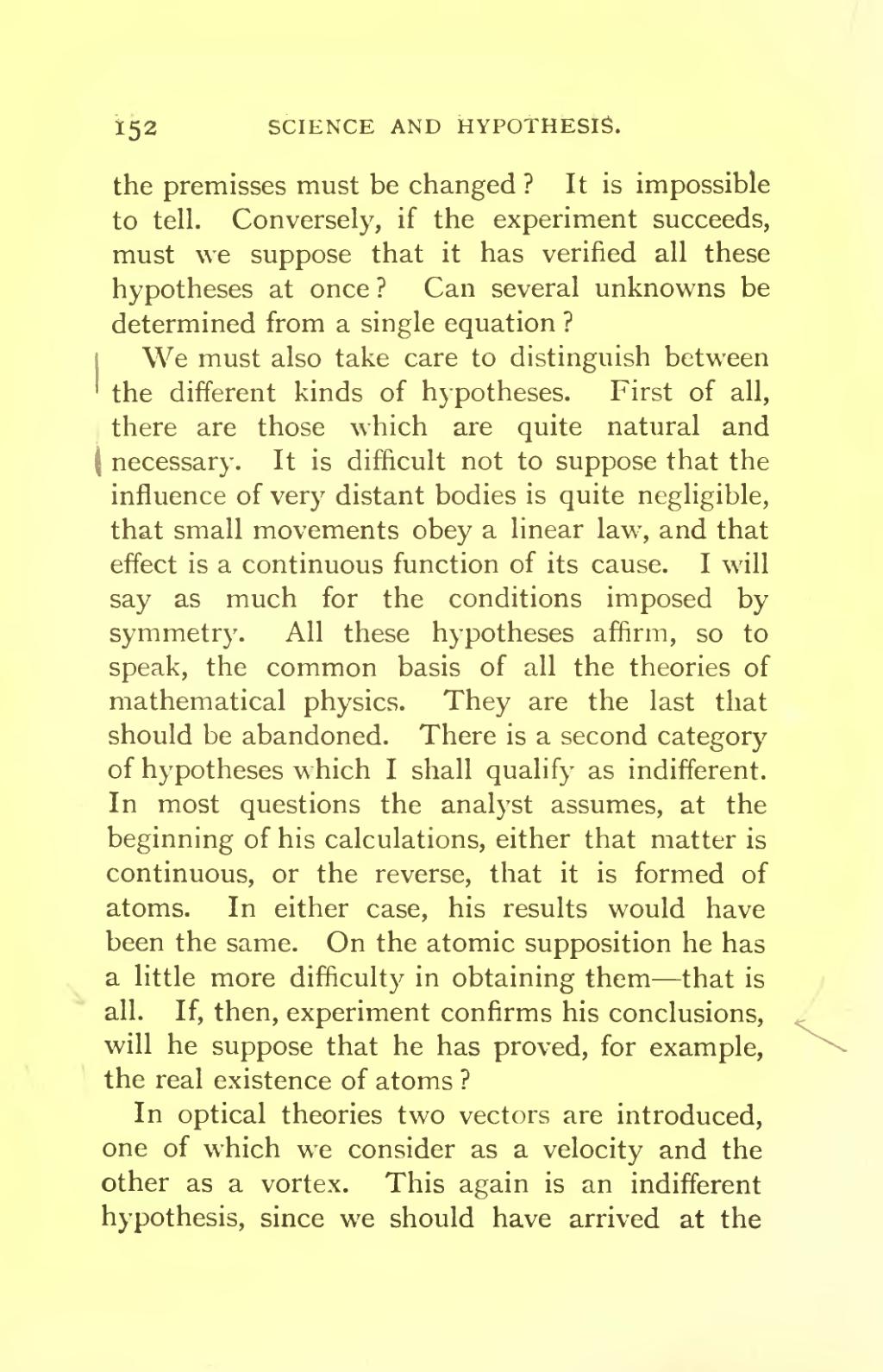the premisses must be changed? It is impossible to tell. Conversely, if the experiment succeeds, must we suppose that it has verified all these hypotheses at once? Can several unknowns be determined from a single equation?
We must also take care to distinguish between the different kinds of hypotheses. First of all, there are those which are quite natural and necessary. It is difficult not to suppose that the influence of very distant bodies is quite negligible, that small movements obey a linear law, and that effect is a continuous function of its cause. I will say as much for the conditions imposed by symmetry. All these hypotheses affirm, so to speak, the common basis of all the theories of mathematical physics. They are the last that should be abandoned. There is a second category of hypotheses which I shall qualify as indifferent. In most questions the analyst assumes, at the beginning of his calculations, either that matter is continuous, or the reverse, that it is formed of atoms. In either case, his results would have been the same. On the atomic supposition he has a little more difficulty in obtaining them—that is all. If, then, experiment confirms his conclusions, will he suppose that he has proved, for example, the real existence of atoms?
In optical theories two vectors are introduced, one of which we consider as a velocity and the other as a vortex. This again is an indifferent hypothesis, since we should have arrived at the

